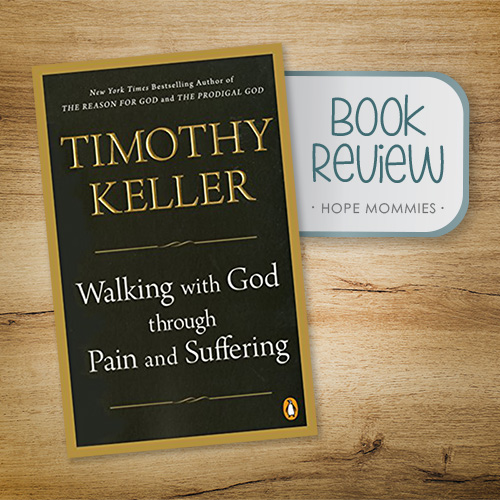Book Review: Walking with God through Pain and Suffering

Throughout many years of pastoral ministry, Timothy Keller and his wife Kathy, walked alongside countless individuals in the midst of suffering, and faced great suffering of their own. Through these experiences they came to realize that “the heart of why people disbelieve and believe in God, of why people decline and grown in character, of how God becomes less real and more real to us — is suffering.” (6)
Suffering is inevitable. No amount of planning and preparation can completely guard you from facing suffering in this life. In John 16:33 Jesus says, “Here on earth you will have many trials and sorrows. We cannot avoid or prevent suffering. Thus the reason for this book. It is imperative that we learn how to understand and endure suffering well.
Keller divides his book into three sections. In the first, he takes an intellectual look at suffering and the ways that a variety of cultures and religions throughout history have handled it. Keller argues that Christianity provides a greater hope and understanding of suffering than any other cultural or religious explanation.
In conclusion, we are shown four tenets of Christianity that allow this worldview to stand above all others when it comes to understanding and facing suffering.
1. We believe in a personal God who controls the affairs of the world.
2. Through Jesus, God came to earth and suffered with and for us sacrificially.
3. Through faith in Christ’s work on the cross we can have assurance of salvation.
4. We believe in the bodily resurrection from the dead for all who believe. This is not just a consolation, but a restoration of all that is broken. (58, 59)
In the second section of the book, Keller explains what the Bible says about the character of suffering. He looks at three different doctrines of the Christian faith and how they give us great insight into the scope of suffering. The first doctrine—creation and the fall—explain why evil exists. It was never a part of God’s original design, but rather a result of the brokenness of sin that entered the world. The second doctrine—the final judgement and future renewal of the world—shows us how God will ultimately deal with suffering. This will be a final and utter defeat of evil and suffering. The final doctrine—the incarnation and atonement—demonstrate God’s love and compassion for us in our suffering. “The sovereign God Himself has come down into this world and has experienced its darkness.” (120)
This incredible description of Christ’s suffering on our behalf gives great hope to those of us in the midst of our own suffering. “Jesus lost all His glory so that we could be clothed in it. He was shut out so we could get access. He was bound and nailed, so that we could be free. He was cast out so we could approach. And Jesus took away the only kind of suffering that can really destroy you: that is being cast away from God. He took so that now all suffering that comes into your life will only make you great. A lump of coal under pressure becomes a diamond. And the suffering of a person in Christ only turns you into somebody gorgeous.” (180–1)
The final section of the book focuses on how we can walk with God in the midst of suffering. “Suffering can refine us rather than destroy us because God Himself walks with us in the fire.” (9) “If you believe in Jesus and you rest in Him, then suffering will relate to your character like fire relates to gold.” (234) Rather than trying to avoid suffering or quickly escape it, we must learn to be purified through it.
Each chapter in this section outlines a different approach for drawing near to God while enduring pain and suffering. Keller reminds us that this is a day after day commitment to trust Him, worship Him, pursue Him through His Word and in prayer, and obey Him. He also encourages us to be honest with ourselves and God about our pain and sorrow. The Bible gives us many examples of grieving and weeping during suffering, and we should not deny ourselves permission to grieve well over what we are suffering.
Throughout the entire book, Keller shares powerful and encouraging testimonies of real people who have trusted God in the midst of suffering. These stories demonstrate the principles of understanding and facing suffering that he writes about in this book, and remind us to recognize the presence of God even in the darkest of times.
While this book contains a lot of theology and apologetics, it is also deeply pastoral. Keller strives to reach out to the heart of those who are suffering and offers them practical encouragement and hope in Christ. This book is an excellent resource for understanding suffering, enduring it in hope, and encouraging others who are walking through pain and suffering.
To view other resources recommended by Hope Mommies take a look at our resource page.
- Ashlee
Hope Mom to Simeon and Odelle
Ashlee is the Editorial Coordinator for Hope Mommies and author of I AM (Hope Mommies, 2017) and Identity (Hope Mommies, 2018). She and her husband, Jesse, live in Milwaukee with their children—five on earth and two in heaven.
Are you a writer who would like to join the blog team? Learn more and apply here.


Got something to say?